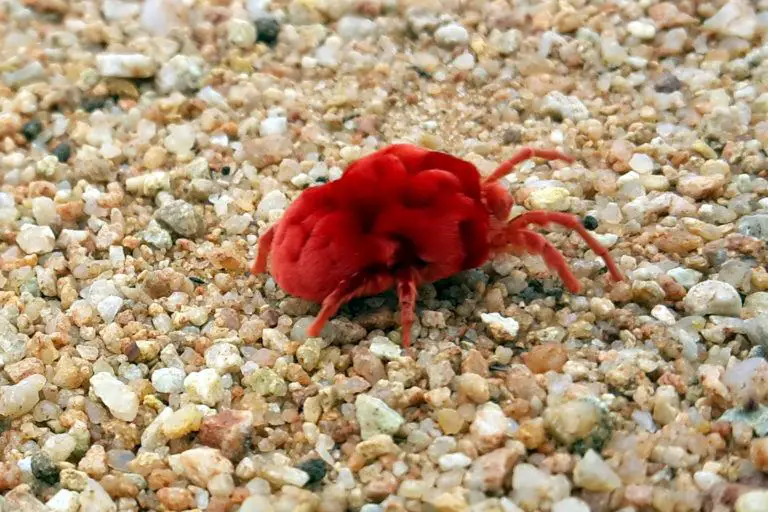
There is a common misconception that chiggers are bugs that burrow under your skin and suck your blood. I grew up believing this falsehood. Chiggers are tiny little mites and they do not crawl into your skin. They have six little legs and live in grassy, weedy, or wooded areas. They’re kind of like miniature ticks. Chiggers also like to bite you and just hang on, but because of their size people generally end up killing them or brushing them off when they itch the bites. They don’t get a very filling meal when they feast on humans. They don’t suck your blood either. They inject you with their saliva, which liquefies your flesh, and then they suck it back up. Delicious! If you’ve got chigger bites, you’ll be very itchy and have little red bumps or hives on your skin where you were bitten. Although it’ll go away in time, treatment will help alleviate itching and avoid infection.
Chigger Bite Symptoms
- Extremely itchy skin
- Red welts or hive-type bumps
Treatment for Chigger Bites
Protect yourself from getting chigger bites in the first place.
Avoid areas that you know are infested with chiggers. If you’re determined to venture into their territory, cover your skin with pants, socks, and long sleeves. If you’re stubborn, or if it’s too hot to cover yourself, then at least wear bug spray. Wash and change your clothes as soon as you can after you leave infested areas. The little buggers will be all over them.
Take a shower or bath as soon as possible after you know you’ve been bitten.
This is kind of like checking for ticks after you’ve been in the woods. A good scrub down will remove chiggers from your body. Just looking for chiggers won’t be good enough—they’re tiny (like 1/150 of an inch wide). If you can spot them with your naked eye, especially in your hard-to-reach places, you get superhero status in my book. Washing your skin soon after the initial bite will also help minimize itching.
Keep from scratching too much.
You have a few options here. You can develop awesome willpower and just not scratch. Ever. Or you could take an antihistamine, like Benadryl, to ease the itchiness. Then there are anti-itch creams like Cortizone-10 (sold at Amazon). Whatever anti-itch route you choose to go, read the labels and use the products properly. Witch hazel is a natural alternative to reduce itching. See the sidebar to whip up your own mix at home.
Scratching is good and bad, in different senses.
But mostly bad. When it comes to chiggers, the good thing about scratching is that at the very least you’ll get them off your skin and most likely you’ll end up killing the little jerks. They deserve it for making you miserable. The bad thing about scratching is that it’s easier to get an infection as you repeatedly break your skin open with your nails. And infections are bad—in case you weren’t sure. Scratching can seem like a good idea, but it may come back to bite you later.
If you do end up with an infection, get it cleared up.
This is the only real potential problem with chiggers. The itching is just annoying, not a health concern. However, if you scratch without washing your hands or the affected area frequently, you risk infection. Get a doctor’s help if you absolutely cannot stand the itching or if it’s not getting better after you’ve tried to treat it at home with some of the suggested methods. They can prescribe the right sort of medication to treat your particular infection.
Folk Remedies Will Not Work
There are rumors going around that chiggers burrow into your skin and these rumors come along with methods for removing the supposed bugs in your skin. Growing up in rural Wisconsin, I remember one of the “cures” for chiggers was smothering the infested skin with Vaseline and then wrapping it in plastic wrap. This would suffocate the bugs and force them to come out of your skin. Another method was to put nail polish on the bites to do the same thing. Or douse your skin in turpentine or a similarly harsh liquid. Hogwash. All of it. And that last one could get dangerous, especially if you decide to have a campfire while covered in it. Needless to say, these are ineffective. Don’t waste your time with these. Chiggers are neither alive nor dead in your skin, and this is one less thing to worry about.
Best Natural Remedies
Sulfur.
Sulfur smells bad. Chiggers think so too and so they avoid it. You can dust some on your skin or clothes, but beware: It can irritate the skin. It may also be harder to make and keep friends when you stink like that.
Maintain outdoor areas.
Chiggers like to live in lots of brush and grass. So if you clear out their habitat, they’ll clear out as well. This is obviously not an option if you’re going on a nature hike. Park rangers will not be supportive if you try this.
Witch hazel.
This stuff isn’t actually a remedy for chiggers, but for itching. You can buy it at drugstores or, if you want to go all out, boil one pound of witch hazel twigs in two gallons of water for your own brew of itch-relieving goodness. You can find these witch hazel pads in a 60ct jar at Amazon.